
SPECIAL REPORT: By Sri Krishnamurthi for Asia-Pacific Report
The warning is stark — New Zealand is on the verge of a “tsunami” of dementia cases and the government can ill-afford to merely acknowledge the University of Auckland’s Dementia Economic Impact Report 2020.
And while it may not receive the priority which goes to dealing with the covid-19 pandemic, it is nonetheless a concern.
The report found an estimated 69,713 people — or 1.4 percent of the population — were living with dementia in 2020 and that number is projected to more than double to 167,483 — or 2.7 percent of the population — by 2050.
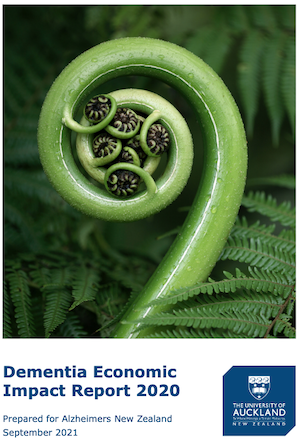
The alarming statistic is that the number of Māori, Pacific and Asian people with dementia is expected to triple, while the number of Europeans with dementia is expected to double.
“This is the fourth dementia report we’ve written and the last three reports have all talked about the baby boomer generation coming up to retirement age and people living longer,” says Dr Etuine Ma’u, lead author of the report and a Tongan.
“So we have this massive bulge of 65-year-olds coming through since 2011. This report now is saying, look at the tsunami, the surge of cases that is here now,” the senior lecturer at the University of Auckland and consultant psychiatrist at Waikato hospital says, sounded a stark warning.
“It is concerning because at the moment we’re sitting at about 15 percent of the population of people with dementia being Māori, Pasifika and Asian and that is going to rise to a quarter and they are growing a lot quicker because the population is ageing a lot quicker.
Worry that it’s an underestimate
“The worry is that it is an underestimate and that is because we had a paper out earlier this year looking at the risk factors for dementia and what is shown is that, particularly for Māori and Pacific, their risk factor burden is a lot higher than European which means that they are probably at a higher risk of developing dementia anyway,” Dr Ma’u says.
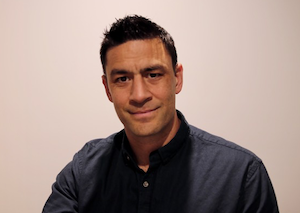
At the same time that the report was launched, an updated action plan was also presented to Associate Health Minister Dr Ayesha Verrall.
“The plan is really a call to action for the government, the plan is really trying to highlight to the ministry the urgency of addressing dementia,” Dr Ma’u says.
While the reports have all been acknowledged, nothing further has been done since 2008.
“I don’t think that they have (the past four governments) paid attention to them in any practical sense. They’ve always acknowledged the reports when they have come out and they’ve always acknowledged that the problem is coming,” Dr Ma’u says.
“I think what is urgent about the current report is that it really shows the problem is here right now.”
Closer to home
For report co-author Auckland University of Technology associate professor Dr Rita Krishnamurthi, a stroke and dementia researcher, it is much closer to home.
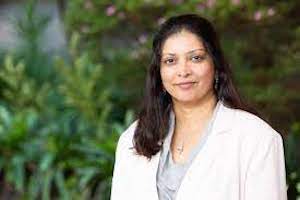
Her father, Venkata Chalam, died in July 2014 from dementia and that proved a spur to her studies into dementia.
“That was my motivation to do something about this insidious disease because in the last years of his life it was particularly bad,” she says.
“Culturally too, we weren’t going to put him in aged residential care (ARC) where he wouldn’t get the comforts of home, like food and company that he was comfortable with.
“My mother (Sita) wouldn’t hear it; she insisted that he was cared for at home.”
Cultural and social norms were the primary reasons Māori, Pasifika and the Asian communities were hesitant to make use of the ARC.
“The other problem is that because Europeans (or Pakeha) make up the overwhelming majority of the population over 65 with dementia, all of the interventions and services are pitched at that group,” Dr Ma’u says.
Not culturally appropriate
“So they are not culturally appropriate, they are not really acceptable particularly to Māori, Pasifika and many Asian populations. They are not using those services and that means that they are carrying the burden of care and the cost associated with it themselves.
“And that is what the report shows quite strongly.
“We need tailored services, we need tailored intervention and what we need the Ministry of Health and the government to wake up to is that if in the next 20 years non-European people with dementia are going to make up a quarter of all the people with dementia then we are going to have to start targeting services and developing services and targeting policy that is acceptable and appropriate to these different groups.
“There is no one size fits all approach,” he says bluntly.
A year ago research into dementia found 12 significant risk factors that brought the onset of dementia into people.
“There was a big paper that came out a year ago with The Lancet which identified 12 potentially modifiable risk factors for dementia and they calculated what is called the population attributable fraction which is effectively the amount of dementia you could potentially prevent if you could completely get rid of those risk factors,” Dr Ma’u says.
“The risk factors broadly speaking fall into two categories — those that increase the risk of damage to the brain like high blood pressure, diabetes, smoking, alcohol, physical activity and diet and then there are factors that impact on your competent reserve, which is basically your brain’s ability to cope and to compensate for any damage.
Active social network
“That is around maintaining a healthy and active social network, your level of education because it challenges the brain more.
“Hearing is a massive one because people who have difficulty hearing have a problem with socialising.”
The cost of hearing aids in New Zealand is a major prohibiting factor, he says.
“We’re hearing things like funding hearing aids is going to make a massive difference but in New Zealand, they are horrendously expensive.”
He makes it clear that the health industry is not geared up to deal with the wave of dementia cases that is impending.
“Are we ready, the short answer is ‘no’, it is the message that Alzheimer’s New Zealand wanted to push across when they presented their dementia plan to the Associate Minister for Health,” he says.
“I don’t think we are prepared: based on the dementia report the costs are really high, estimated at $2.5 billion. Because we are looking at an extra 30,000 people with dementia in the next 10 years and an extra 100,000 people in the next 30 years, even based on today’s dollars, the cost per person is around $30,000-$35,000.
“So we are looking at an extra billion dollars that the government is going to have to find in the next 10 years alone just for dementia and I don’t think the health budget can sustain that.
No cure for dementia
“There is no cure for dementia at the moment, and the only way we can reduce cost is by reducing the prevalence, reducing the number of people.”
He says what is more disquieting is that no studies of the disease have been done in the wider Pacific.
“I don’t know,” he says when asked if studies have been done in the Pacific.
“I can only speak from the Tongan point of view and I can say there are no studies and I’m pretty sure that there aren’t any in Samoa and Fiji either,” Dr Ma’u says impassively.
“Based on the work we did earlier on the risk factors for dementia in different populations in New Zealand I suspect the prevalence of dementia in the Pacific is going to be quite high, the risk factor burdens are going to mirror those of the Pacific population in New Zealand so I think it is going to be high.”
While it isn’t getting the daily headlines that covid-19 is, and he acknowledges that the pandemic deserves the attention, as opposed to dementia which is a silent creep.
“Covid-19 is a huge problem, you just have to look at Auckland to see how massive it is, but dementia is an insidious problem that is just going to keep getting bigger if we don’t do anything about it now,” he says.
Costs of healthcare
“The earlier people get diagnosed, the earlier they put interventions in place, the longer they can live well at home and the longer you can delay things like entry to aged residential care (ARC)… and residential care in New Zealand is where most of the costs of healthcare and the cost of dementia sit.
“We have shown in our report over half of the economic costs of dementia is around social care, predominantly paying for residential care and paying for community care. If we can reduce the number of people entering residential care by supporting them better at home then ultimately you will reduce the costs.
“That’s why personally my big push is around dementia prevention and that is ultimately going to be the way we reduce the costs.
“We are also talking about the need for tailored intervention, the tailored services that Māori, Pasifika and Asian populations are actually going to find acceptable.
“I don’t think we provide the level of service and interventions to people with dementia that they need, there is a deficit all the way across and from my point of view there is a difference in uptake that Europeans use compared to Non-Europeans.
“The report shows that Europeans are using $5000-$8000 more of social care which shows that Māori, Pasifika and Asians don’t go into aged care as much as Europeans do.
“Maori, Pasifika and Asians aren’t wanting to put their loved ones into care because they don’t see it as a place that will meet the needs of their loved ones and that has to change,” Dr Ma’u says.
Awareness of dementia is a problem too, how does one discuss a family member suffering from this disease?
Awareness slowly growing
“It is slowly coming to the public’s attention and the awareness is slowly growing,” he says.
“There is a lot of stigma associated with dementia particularly in Pacific cultures, there is a really poor understanding of what dementia is and the names that are used for it.
“The way it is understood varies from being a part of normal ageing and something just happens and you just have to accept it and deal with it.
“Or through it being something of punishment or karma for bad things done in earlier life.
“We need to shift that mentality to reduce that stigma so that people understand that the changes that are happening in someone’s cognition needs to be looked at, needs to be assessed and diagnosed so we can get the interventions early to provide as much support as possible”
The irony is there is no term to describe dementia in the Islands.
“In Tongan, there is no specific term for dementia. In Tonga the psychiatrist (Dr Mapa Puloka) is trying to get a definition as catastrophic decline “Holo Tamaki’’, effectively trying to describe the deterioration in someone, otherwise, it’s called “Loto Ngalongalo” which means forgetful or they call it “Alasaima’.
“General understanding, they call it crazy ‘fakasesele’.”
The stigma is such that people don’t talk about the deterioration in one’s mental capacity once caught in its vice-like grip that there is no escape from.
When it becomes real
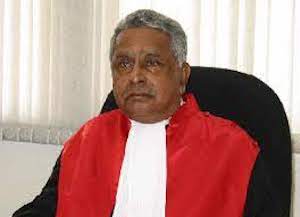
This is where it becomes real. Helen Reddy, daughter of the former leader of the National Federation Party, the perennial opposition in Fiji, Jai Ram Reddy comes into focus.
Jai Ram Reddy is currently in Auckland, at an ARC, suffering from Alzheimer’s disease. Gone is the charisma, the magnetism and the flamboyance of the once-proud politician and lawyer who revelled in reciting verse and chapter the works of Shakespeare.
He served as the Minister of Justice and Attorney-General in the coup-stricken Dr Timoci Bavadra government in 1987.
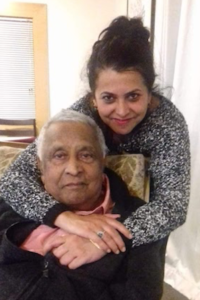
He was the first Indo-Fijian that was accorded the right to address Fiji’s Great Council of Chiefs and at the zenith of his powers in 2003, was elected to the International Criminal Tribunal for Rwanda in Tanzania.
Sadly, however, when Helen, herself a lawyer and a senior crown prosecutor in London, endured the MIQ system in Auckland to get to see her father he was a mere shadow of his former self.
That didn’t deter Helen, on one occasion during her visits to see her dad she played a ghazal (old Indian song) from Jagjit Singh.
The lyrics read:
“Hmm hmm hmm … ha ha ha
Hmm hmm hmm … ha ha ha
Hoshwalon ko khabar kya bekhudi kya cheez hai
Mindful people don’t know about senselessness
Hoshwalon ko khabar kya bekhudi kya cheez hai
Mindful people don’t know about senselessness
Ishq kijiye phir samajhiye
Fall in love, then you’ll understand…
Ishq kijiye phir samajhiye zindagi kya cheez hai…”
As Helen relays wistfully:
“I saw dad again today. Moments of lucidity. I played the first song on this Jagjit Singh track and he stroked my face so lovingly xx”.













































